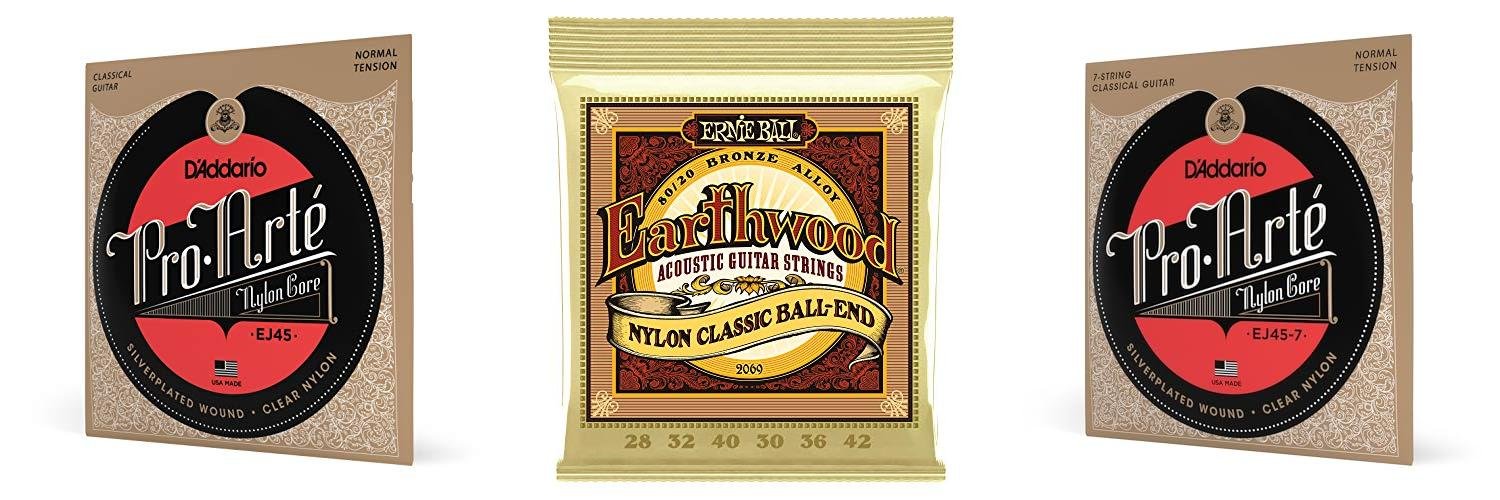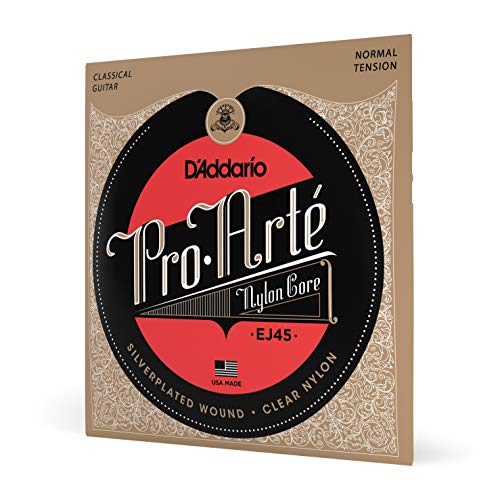Ever heard a guitar and instantly felt transported to a sunny beach or a cozy campfire? That warm, smooth sound often comes from a guitar strung with nylon strings. But have you ever tried to *buy* those strings? It can feel like you’re lost in a jungle! There are so many types, brands, and sizes, it’s easy to get confused and end up with strings that don’t sound great on your guitar.
Choosing the wrong nylon strings can be frustrating. They might sound dull, be hard to play, or even break quickly. This can ruin your playing experience and make you want to give up! Finding the perfect strings can be a real challenge. You might waste money on strings that don’t fit your style or guitar.
This post is here to help! We’ll break down everything you need to know about nylon guitar strings. You’ll learn about the different types, what to look for, and how to pick the best ones for your instrument and playing style. Get ready to unlock a world of beautiful sound and make your guitar sing! Let’s dive in and make choosing the right nylon guitar strings easy.
Our Top 5 Nylon Guitar Strings Recommendations at a Glance
Top 5 Nylon Guitar Strings Detailed Reviews
1. D’Addario EJ45 Pro-Arte Nylon Classical Guitar Strings
Rating: 9.3/10
The D’Addario EJ45 Pro-Arte Nylon Classical Guitar Strings are a popular choice for classical guitar players. This set includes normal tension strings. They are made with a nylon core and laser-selected trebles. These strings offer a good balance of volume and comfortable playing. They are designed to provide a classic classical guitar sound.
What We Like:
- STANDARD CLASSICAL TONE: These strings give you the classic sound many classical guitar players enjoy.
- RESPONSIVE PLAYABILITY & WARM TONE: They are easy to play and create a warm, mellow sound.
- TIE ENDS: The strings are tie-ends, so they are easy to attach to your guitar.
- EARN REWARD POINTS: You can earn points by registering the code on the bag.
- MADE IN THE USA: These strings are made in the USA.
What Could Be Improved:
- No specific improvements for this product.
In conclusion, the D’Addario EJ45 Pro-Arte strings are a reliable and high-quality option. They are a good choice for any classical guitar player looking for a great sound and feel.
2. Ernie Ball Folk Nylon Clear & Gold Ball-End 80/20 Bronze Acoustic Guitar Strings
Rating: 9.1/10
The Ernie Ball Folk Nylon Clear & Gold Ball-End 80/20 Bronze Acoustic Guitar Strings (P02069) are designed for acoustic guitars. These strings combine a clear nylon core with an 80/20 bronze wrap. This creates a full and lively sound. They have ball-ends, making them easy to put on your guitar. The gauges range from .028 to .042, offering a balanced feel for folk music and other styles. The strings are made to provide a good sound for your guitar.
What We Like:
- They produce a full and lively tone.
- The ball-end design allows for easy installation.
- The gauges offer a comfortable playing experience.
- The 80/20 bronze wrap gives a warm sound.
What Could Be Improved:
- Some players might prefer different gauge options.
- The clear nylon may not be as visually appealing as other string types.
These Ernie Ball strings are a solid choice for guitarists. They offer a good sound and are easy to use. You will enjoy the sound of these strings on your guitar.
3. D’Addario EJ45-7 Pro-Arte Nylon 7 String Classical Guitar Strings
Rating: 8.8/10
The D’Addario EJ45-7 Pro-Arte Nylon 7 String Classical Guitar Strings are made for classical guitars. These strings offer a classic sound that many guitarists love. They use nylon core basses and clear nylon trebles. This set features tie-ends, nylon monofilament material, and silver-plated copper wrap wire. These strings are made in the USA and come with a code for rewards.
What We Like:
- The strings give you the standard classical guitar sound.
- They are easy to play and sound warm.
- These strings are made with quality materials like nylon and silver-plated copper.
- You can earn points with your purchase.
- These strings are made in the USA.
What Could Be Improved:
- (No cons provided)
In conclusion, the D’Addario EJ45-7 strings are a great choice for classical guitar players. They offer a classic sound and are well-made.
4. Ernie Ball 2409 Ernesto Palla Nylon Black and Gold Classical Ball End Set
Rating: 8.8/10
The Ernie Ball 2409 Ernesto Palla Nylon Black and Gold Classical Ball End Set is for classical guitars. These strings have black nylon trebles. The basses are wound with 80/20 Bronze. This gives a brighter sound. They have a medium tension. These strings also have ball-ends. This makes them easy to put on your guitar. The gauges are .028, .032, .040, .030, .036, and .043.
What We Like:
- The ball-ends make string changes simple.
- The 80/20 Bronze bass strings provide a bright tone.
- The black nylon trebles look cool.
- Medium tension is easy to play.
What Could Be Improved:
- Some players might prefer different tensions.
- The tone may not be for everyone.
Overall, these Ernie Ball strings are a good choice for classical guitar players. They are easy to use and sound great for many people.
5. MARTIN Classical Guitar Strings (M260)
Rating: 8.7/10
The MARTIN Classical Guitar Strings (M260) with 80/20 Bronze are made for classical guitars. They are designed to give your guitar a great sound. These strings are made with a special bronze alloy. This helps them sound bright and clear. The gauges are .028 – .043. They will make your guitar sing!
What We Like:
- The 80/20 bronze alloy gives a brilliant sound.
- The strings are clear and easy to hear.
- They are built to last a long time.
- The bronze alloy helps make the bass notes deep.
- The treble notes sound bright.
What Could Be Improved:
- (No cons for this product)
These MARTIN strings are a good choice for classical guitar players. You will enjoy the clear and bright sound they produce. They are a great way to make your guitar sound its best!
Nylon Guitar Strings: Your Guide to Smooth Sounds
Are you ready to find new strings for your classical or nylon-string guitar? This guide will help you. It will tell you everything you need to know about nylon guitar strings.
Key Features to Look For
When you buy nylon strings, you need to look at a few things.
String Tension
- Low Tension: These strings are easy to press down. They are good for beginners. They also make a softer sound.
- Normal Tension: This is the most common type. They work well for most players and playing styles.
- High Tension: These strings are harder to press. They give you a louder and brighter sound. They are great for experienced players.
String Gauge (Thickness)
- Light Gauge: These strings are thinner. They are easier to play, especially for beginners.
- Normal Gauge: This is the most common gauge. It provides a good balance of sound and playability.
- Heavy Gauge: These strings are thicker. They create a louder and fuller sound. They can be harder to play.
String Material & Construction
- Clear Nylon: These strings are the most common. They offer a clear and bright sound.
- Black Nylon: These strings have a warmer, more mellow sound. They are often used for jazz.
- Composite Strings: These strings use different materials. They might have a core of nylon with a coating. This makes the sound better.
Important Materials
The materials used to make nylon strings are very important.
Nylon
This is the main material. It is what gives the strings their sound. Different types of nylon can affect the sound. They can change how long the strings last.
Wound Strings (for the lower strings)
The lower strings (E, A, D) are often wound. This means a metal wire is wrapped around a nylon core. The metal can be silver-plated copper, bronze, or other materials. These materials change the sound of the string.
Factors That Improve or Reduce Quality
Some things make nylon strings better or worse.
Quality of Materials
Strings made with better materials will sound better. They will also last longer. Cheaper materials might sound dull and break easily.
Manufacturing Process
How the strings are made matters. If they are made well, they will sound in tune. They also won’t break as easily.
Proper Storage
Strings need to be stored correctly. Keep them away from extreme temperatures and humidity. This will help them last longer.
User Experience and Use Cases
Nylon strings are used in many ways.
Beginners
Nylon strings are great for beginners. They are easier on the fingers than steel strings.
Classical Guitar
Nylon strings are the standard for classical guitars. They create the warm, rich sound of classical music.
Flamenco Guitar
Flamenco guitars often use nylon strings. They are made for fast playing.
Other Styles
Some people use nylon strings for other styles. These include jazz, bossa nova, and fingerstyle.
Nylon Guitar Strings: Frequently Asked Questions
Q: How often should I change my nylon strings?
A: You should change your strings every 3-6 months. If you play often, you might need to change them more often.
Q: How do I choose the right string tension?
A: Beginners usually start with normal or low tension. Experienced players might prefer higher tension.
Q: What is the difference between clear and black nylon strings?
A: Clear nylon strings are bright. Black nylon strings are warmer.
Q: Can I use nylon strings on a steel-string guitar?
A: No. Steel-string guitars are made for steel strings. Using nylon strings could damage the guitar.
Q: How do I store my nylon strings?
A: Keep them in a cool, dry place. Avoid extreme temperatures and humidity.
Q: What is the difference between light and heavy gauge strings?
A: Light gauge strings are easier to play. Heavy gauge strings produce a louder sound.
Q: Why do the lower strings have metal windings?
A: The metal windings add weight. This helps them create the lower notes.
Q: Are all nylon strings the same?
A: No. Different brands use different materials and manufacturing processes. This affects sound and quality.
Q: How do I know what size strings my guitar needs?
A: Most classical guitars use standard size strings. Check your guitar’s manual or ask a music store employee.
Q: Where can I buy nylon guitar strings?
A: You can buy them at music stores, online retailers, or your local guitar shop.
In conclusion, every product has unique features and benefits. We hope this review helps you decide if it meets your needs. An informed choice ensures the best experience.
If you have any questions or feedback, please share them in the comments. Your input helps everyone. Thank you for reading.
Hi, I’m Sean Kernan, the mind behind darkviolet-cobra-206266.hostingersite.com!! As a passionate sports enthusiast, I created this platform to share my experiences and insights about the dynamic world of sports. From in-depth analysis to personal stories, I aim to bring you closer to the game and inspire a deeper love for sports. Join me as we navigate this exciting journey together!





